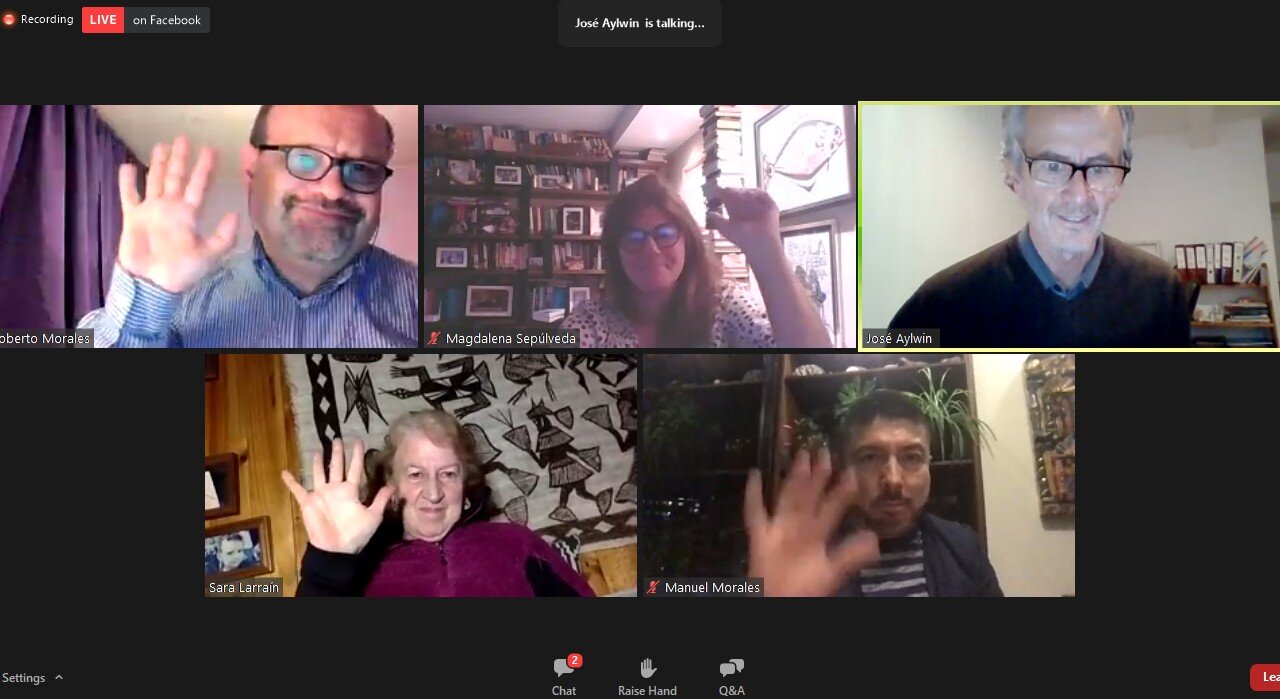
Chile’s new Constitution must enshrine new models of participatory governance
Chile’s new Constitution must enshrine all human rights and new models of participatory governance, experts highlight
This Tuesday 13th October, ahead of the referendum in Chile which will decide whether the country shall have a new constitution, Magdalena Sepúlveda Carmona, GI-ESCR’s Director, participated in a major debate on how to incorporate economic, social and cultural rights into the constitutional process, organised by Observatorio Ciudadano. She highlighted that any constitution, today, should enshrine and therefore guarantee the rights of all. If Chile is to have a new constitution, it should respond to the glaring social demands and inequality crisis that the country has been experiencing.
Magdalena Sepúlveda Carmona recalled that all rights, should they be civil and political, economic, social and cultural or environmental, are indivisible and interdependent. Any 21st Century constitution, she added, should integrate them equally.
"There is no difference in nature between civil and political rights and ESC rights. This idea that there are categories of rights and that first come civil and political rights, then economic, social and cultural rights, and thirdly environmental rights, is a completely artificial categorisation. These rights are indivisible".
"We cannot think of a constitution in the 21st century that does not listen to the current social demands, that does not listen to the enormous crisis of inequality that we are experiencing in the country, that does not try to backtrack on the mechanisms of neoliberal policy".
José Aylwin, coordinator of the Globalisation and Human Rights programme of the Observatorio Ciudadano stressed the need to recognise economic, social and cultural rights as a fundamental demand:
"The economic, social and cultural rights are indivisible from civil and political rights, but they have very little if any recognition in the 1980 constitution. The claim of these facts is at the base of the social explosion, so the expectation that they will be recognized in the future charter is fundamental".
Sara Larraín, Executive Director of Chile Sustentable, underlined the need to differentiate the State from the public domain and to take into account other forms of democratic governance:
"We are in favour of the constitution establishing governance over the common good where the State and the citizens share responsibility. This is how we can understand public responsibility not as a state responsibility, and separate and differentiate the State from the public domain. We are in favour of enriching the public sphere and advancing towards a reliable institutional framework, but also in mechanisms such as the popular initiative of law and binding referendums. If we don't put the emphasis on these forms of democratic governance, however beautiful the constitution may be, it will be a dead letter."
"It is not possible that those who decide on a water basin are those who have water rights, not the State, nor the municipality, nor the neighbourhood council, nor those who live on the river's edge. There is a privatized and corporate governance. This governance logic is very clear in environmental conflicts, but if you go to the pension, health, drinking water and energy systems, all the public goods associated with common goods and basic services follow the same mechanism. Without changing the system of governance, it is going to be very difficult to implement these principles, rights and duties".
Roberto Morales, coordinator of the Human Rights programme at Fundación Instituto de Estudios Laborales - FIEL /CUTemphasised that Chile is at a crossroads and living the opportunity to develop more participatory models in the building of its new constitution:
"Does this constitution allow for the enjoyment of DESCAs? Definitely not, because the 1980 Constitution only strengthened and legally protected a model that violated human rights".
"When societies are in conflict or at a crossroads, the collective construction of a new Magna Carta effectively helps to develop more participatory models of society. The link between human rights and a democratic constitutional order is part of the process of building a new constitution. We are only going to build something that will last with active and permanent participation in this process, where all actors can give their opinion and communicate freely".

Panelists
-
Magdalena Sepúlveda Carmona, Executive Director of the Global Initiative for Economic, Social and Cultural Rights, former UN Special Rapporteur on extreme poverty and human rights.
-
Roberto Morales, Coordinator of the Human Rights Programme at Fundación Instituto de Estudios Laborales - FIEL /CUT.
-
Sara Larraín, Director of Chile Sustentable.
-
Manuel Morales, Executive Director of Corporación de Gestión y Derecho Ambiental - ECOLEX, Ecuador.
Observatorio Ciudadano (Citizen’s Observatory) is a non-governmental organisation that defends, promotes and documents human rights and the rights of indigenous peoples. See: https://observatorio.cl/




